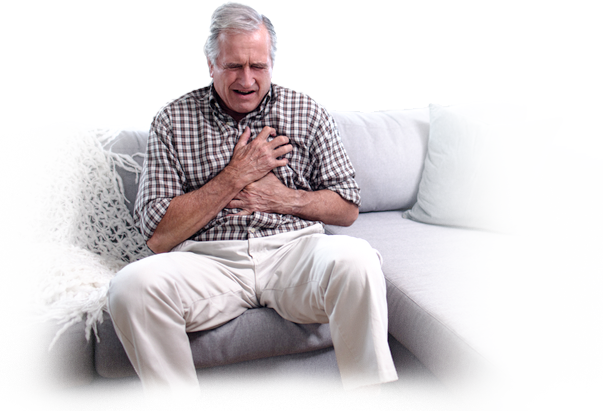Heart Attack, or myocardial infarction, occurs when a clot creates a blockage in the blood vessels and causes a sudden interruption to the blood flowing to the myocardium. Heart attack is an emergency, as the myocardium is deprived of the vital blood supply of oxygen which has the potential to cause a sudden death. It is important to seek immediate medical attention if a person is experiencing heart attack symptoms.
Cold weather exposure can definitely increase the risk of cardiac responses, including heart attacks. Swedish Study investigated a large number of patients in 2017 and found that heart attacks were more common on colder days. This is because blood vessels respond to low temperatures by constricting, which increases blood pressure and reduces circulation to peripheral body parts, putting strain on the heart. Since our heart has to work harder to send blood to all organs.
People with existing heart disease are at particularly high risk of heart attacks during cold weather as the heart function is already compromised. To add to it the respiratory tract infections are more severe and spread more easily. Hence more cases of severe heart problems occur during winter months and cold spells.

Risk factors for heart attacks and heart disease can include:-
- Hypertension
- high blood cholesterol
- Smoking
- Old age
- Family history
- Diabetes
- Obesity
- Sedentary Life Style
- High Alcohol consumption
- Diet high in saturated fats, transfats, and cholesterol
How to take care of your heart from cold?
- Patients with heart disease should try to reduce the duration and intensity of their exposure to cold conditions.
- Wearing plenty of layers of clothing and remain warm to maintain body temperature.
- Avoid going out in the wind and avoiding damp places.
- Limiting consuming alcoholic as taking alcohol creates a false sense of being warm. Best is to avoid alcohol at all.
- Avoid Exerting too much in Cold weather and take regular breaks. At same time it is important to remain active and do indoor exercises as advised by your cardiologist when it is cold outside. Yoga is a good activity for the same
- Hot meals and warm drinks are a good way to keep your body warm in cold
- Pneumococcal and flu vaccines are suitable prevention measures to prevent respiratory infections and also the risk of developing cardiovascular complications.
- A cardiac patient, who already has a respiratory infection, should rest until they have completely recovered before going out in cold.

Our Expert
Dr. Gajinder Pal Singh Kaler has done his DM (Cardiology) from SMS Medical College (Jaipur), M.D (Medicine) from Dayanand Medical College & Hospital (Ludhiana) and M.B.B.S from Government Medical College (Amritsar). He has won the National Award SCAI-Society for Cardiovascular Angiography & Interventions (US), AV Gandhi Award for Excellence in Cardiology 2021. He has also won a National Award, Indian Council of Medical Research, (New Delhi). He was working as a Consultant in Fortis Escorts Heart Institute, (New Delhi) and has also worked in Cornell University, (USA). Dr. G. P. S. Kaler is an International Associate, American College of Cardiology (ACC), a Professional Member of European Society of Cardiology, and a member of Cardiology Society of India.

Leave a Reply